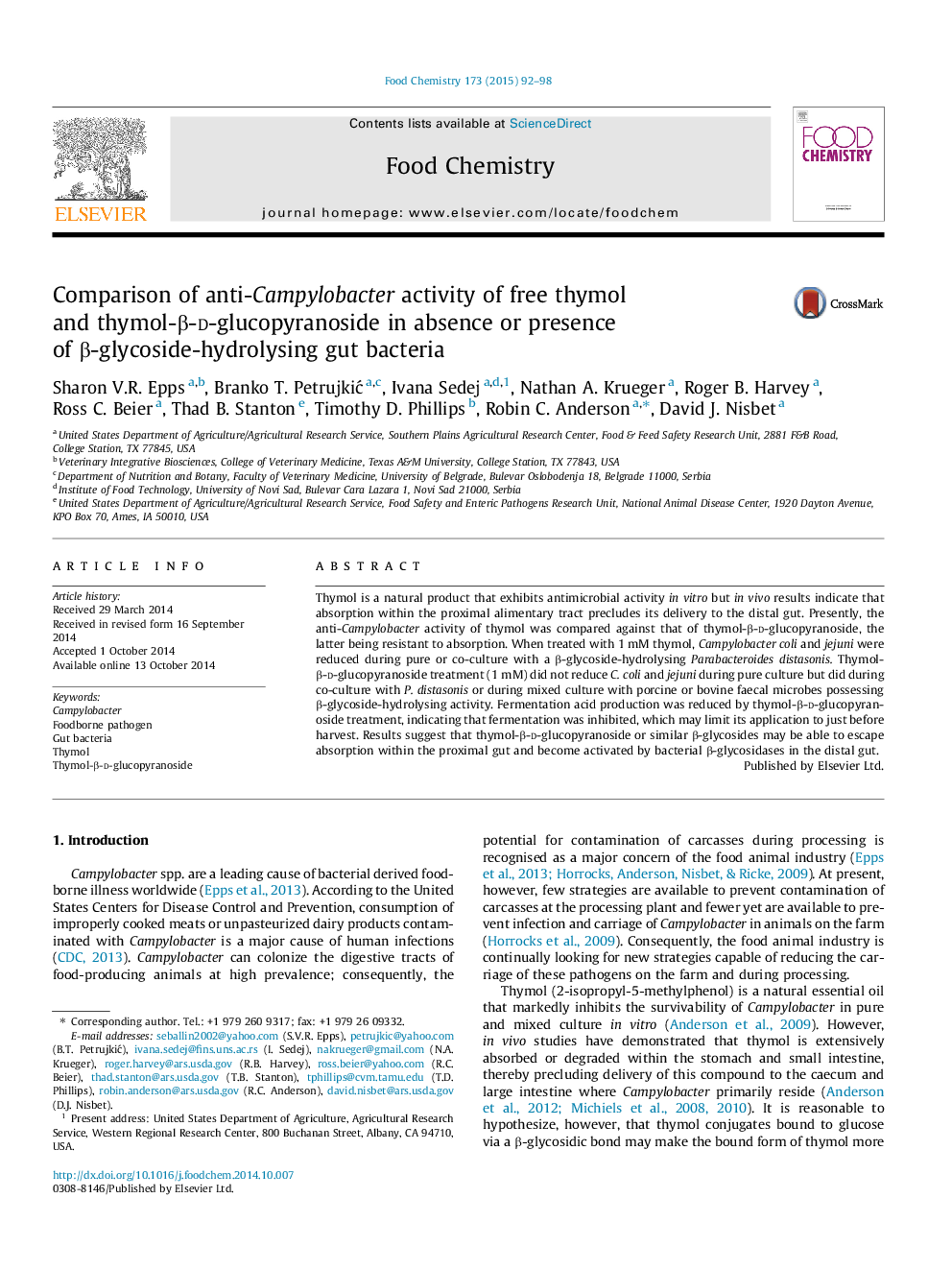| Article ID | Journal | Published Year | Pages | File Type |
|---|---|---|---|---|
| 7593451 | Food Chemistry | 2015 | 7 Pages |
Abstract
Thymol is a natural product that exhibits antimicrobial activity in vitro but in vivo results indicate that absorption within the proximal alimentary tract precludes its delivery to the distal gut. Presently, the anti-Campylobacter activity of thymol was compared against that of thymol-β-d-glucopyranoside, the latter being resistant to absorption. When treated with 1 mM thymol, Campylobacter coli and jejuni were reduced during pure or co-culture with a β-glycoside-hydrolysing Parabacteroides distasonis. Thymol-β-d-glucopyranoside treatment (1 mM) did not reduce C. coli and jejuni during pure culture but did during co-culture with P. distasonis or during mixed culture with porcine or bovine faecal microbes possessing β-glycoside-hydrolysing activity. Fermentation acid production was reduced by thymol-β-d-glucopyranoside treatment, indicating that fermentation was inhibited, which may limit its application to just before harvest. Results suggest that thymol-β-d-glucopyranoside or similar β-glycosides may be able to escape absorption within the proximal gut and become activated by bacterial β-glycosidases in the distal gut.
Related Topics
Physical Sciences and Engineering
Chemistry
Analytical Chemistry
Authors
Sharon V.R. Epps, Branko T. PetrujkiÄ, Ivana Sedej, Nathan A. Krueger, Roger B. Harvey, Ross C. Beier, Thad B. Stanton, Timothy D. Phillips, Robin C. Anderson, David J. Nisbet,
